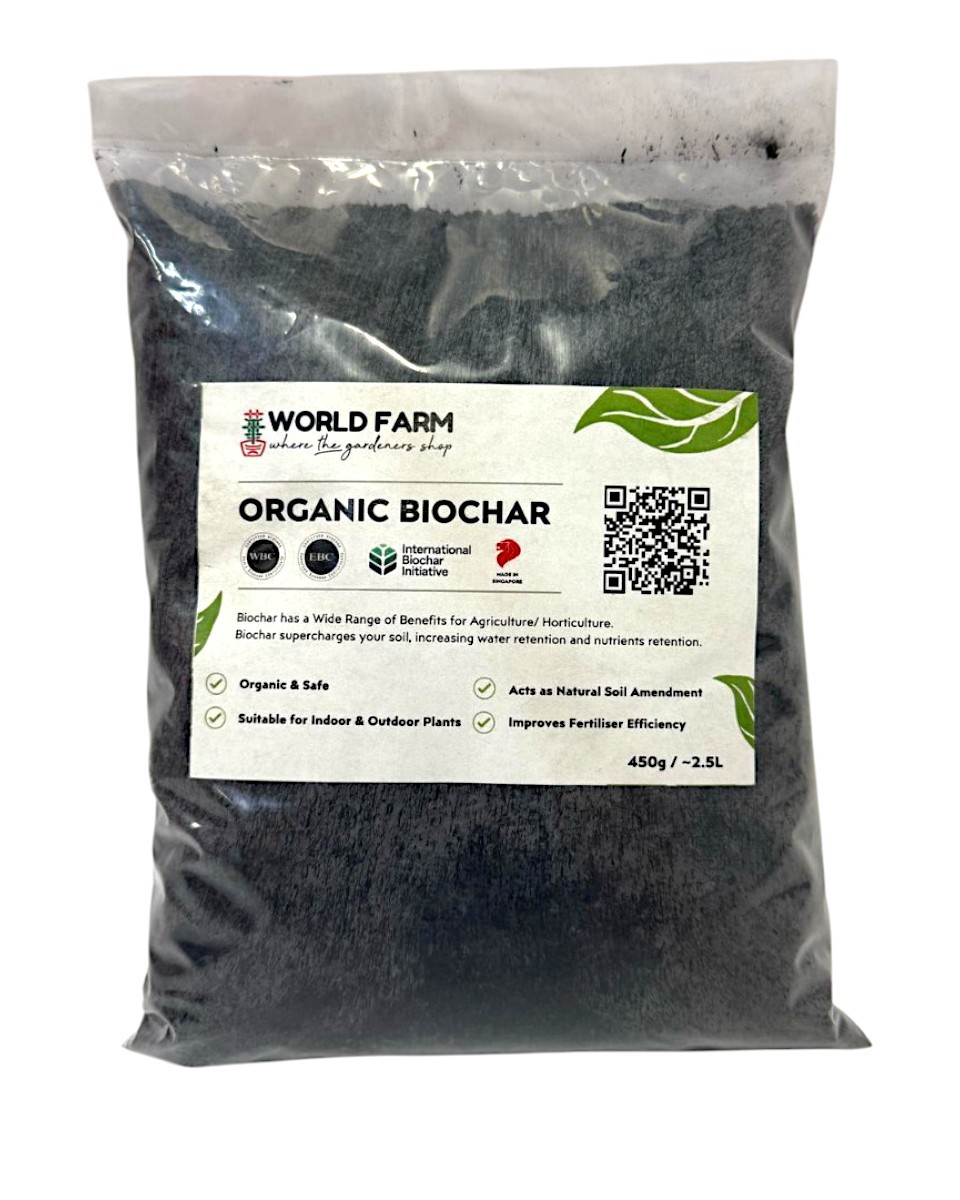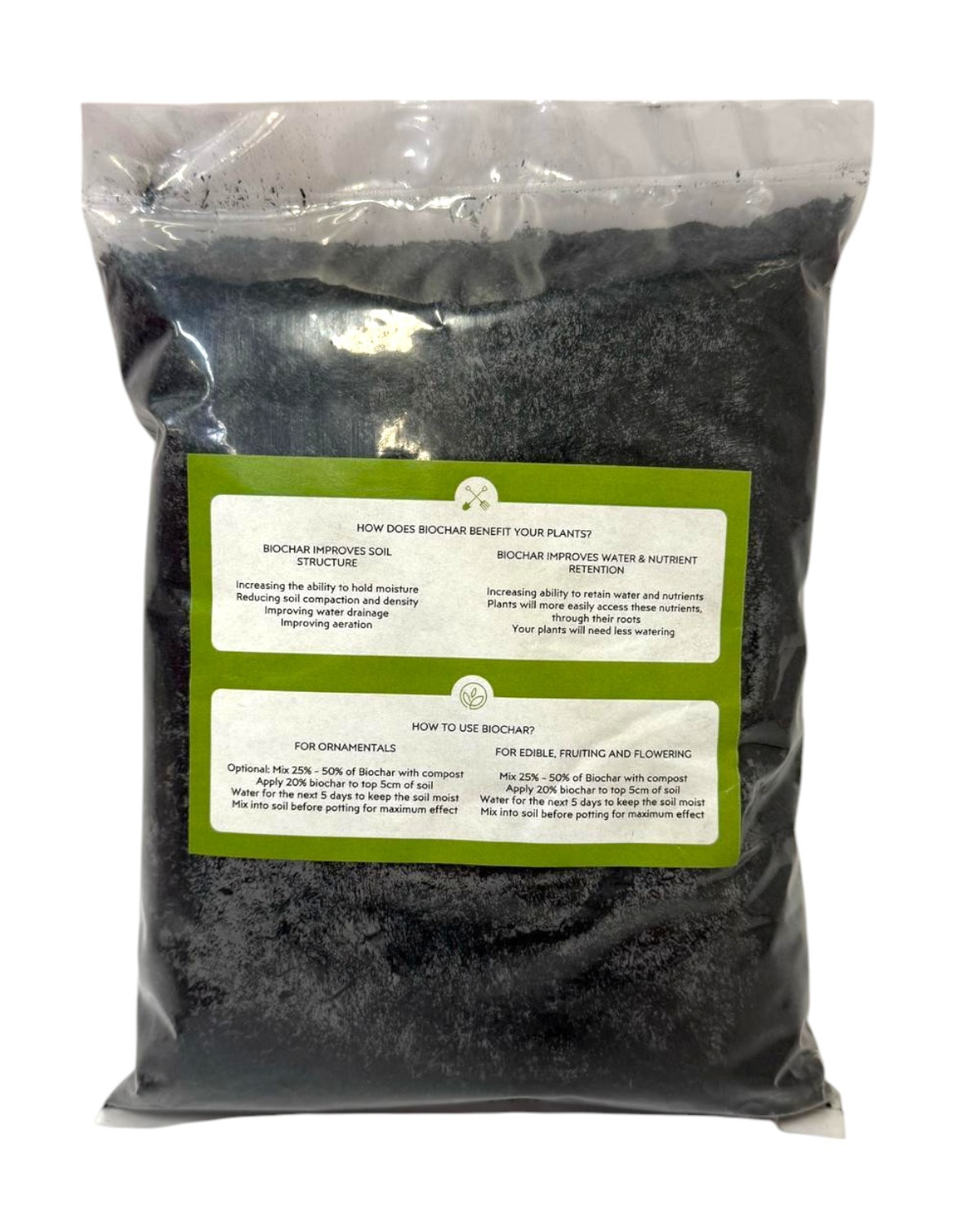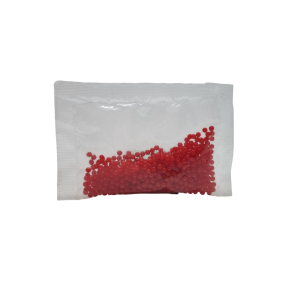Description
Key Benefits
- Perfect For Any Type of Plant: Suitable for use indoors, outdoors, raised garden beds, trees, shrubs, lawns, and even golf courses – anything that grows!
- Healthier Soil: Biochar can enhance soil structure, making it more porous and improving water retention. This is particularly useful in both sandy and clayey soils, as it promotes better drainage and aeration.
- Nutrient Retention: Biochar has a high surface area and can hold onto essential nutrients, preventing them from leaching away. This promotes nutrient availability for plants and reduces the need for additional fertilizers.
- Water Quality Improvement: Biochar can reduce the leaching of pollutants, such as heavy metals, from the soil into water sources, thereby improving water quality.
- Microbial Habitat: Biochar provides a habitat for beneficial microorganisms in the soil. These microorganisms contribute to nutrient cycling, organic matter decomposition, and overall soil health.
- pH Regulation: Biochar can help regulate soil pH, making it more neutral. This is particularly valuable in acidic or alkaline soils, creating a more suitable environment for plant growth.
- Long-lasting Impact: Biochar has a long-lasting impact on soil fertility, as it decomposes very slowly compared to other organic matter. This makes it a sustainable option for soil improvement.
- Carbon Sequestration: Biochar is a stable form of carbon that remains in the soil for an extended period, acting as a carbon sink. This helps mitigate climate change by sequestering carbon dioxide from the atmosphere.
Plant Care Instruction
Common Ailments
Recommended Potting Media
Fertilising








